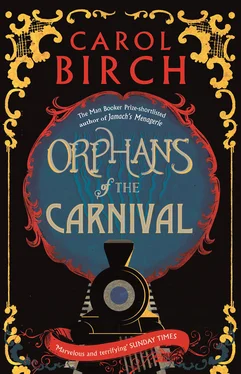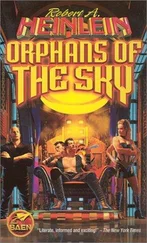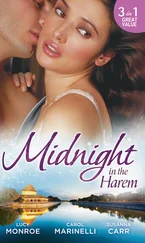‘Fire away,’ said Theo.
‘Are you familiar with my work, Mr Lent?’
‘To some extent.
‘Perhaps not with my most recent studies. Are you aware of the work being done at the Anatomical Museum at the University?’
‘No.’
‘Some fascinating progress, Lent. Quite staggering. Lent, I realise this is an inopportune moment, but I must stress the importance of time.’
‘Time?’
Theo had no idea what the man was talking about.
‘Mr Lent, I will be frank and ask you to consider the possibility of offering your son’s remains to our Anatomical Museum at the University.’
My son. How peculiar .
‘Time?’ said Theo, a look of profound bemusement on his face.
‘The scientific benefits would be enormous.’
‘What are you suggesting, Doctor?’
Sokolov took a deep breath. ‘Your son is a medical curiosity. This you know. I repeat: the scientific benefits would be enormous.’
‘And I repeat: what exactly are you suggesting?’
‘We have perfected a method of embalmment more sophisticated, I believe, than any that has gone before. This is new territory, of course.’
‘You want,’ said Theo, turning away from the misty window and looking at Sokolov, a pair of anguished eyes, a thin forehead, all muffled up against the cold, ‘to embalm my — son.’
‘Forgive me,’ said Sokolov. ‘A very bad time.’
‘Yes indeed. A very bad time.’
They didn’t speak again until they reached the door of the hospital. Sokolov leaned over and shook Theo’s hand. ‘I am so very sorry for all your trouble, Mr Lent,’ he said. ‘I do appreciate your loss, and I would hesitate to bring this up at such a difficult time, but I am aware of the importance of time in this case.’
Theo’s face didn’t alter. ‘Not now,’ he said.
‘Of course. I am so sorry.’
The cold air bit as he got out of the carriage. Snow beginning, slowly swirling. He didn’t want to go in, wanted to run far away, a time before, once, before, anytime. But he went in, idiot-blank, and they said she was a bit better and he could go in and see her, but she was absolutely worn out so best not to stay too long. Someone had given her a rosary, and she was lying with her eyes open, slipping the beads between her fingers. The look in them cut him.
‘What is it?’ he said, taking her hand, ‘what’s the matter? You’ve been very sick but you’re getting better now. Soon be home.’
Her breathing was shallow. Though they’d cleaned her up, she still smelled faintly of vomit and diarrhoea.
‘What have they done with him?’ she asked. ‘Have they thrown him away? They do that, don’t they?’
‘Of course they don’t.’
‘I want him buried nicely.’
‘Of course. Thrown him away! Where do you get your ideas from?’
‘Where is he?’
‘He’s in the morgue.’
That set her off crying again. ‘A terrible place,’ she said. ‘Why do they put the dead in such terrible places?’
To grieve so deeply for someone she’d never known. Not like a person you’ve known for years, Theo thought, that’s understandable. But a baby, it never lived, never knew you, never got the time to be a person. So where does it come from, all that grief?
‘Good God,’ he said, ‘you’re still burning up. Would you like some water?’
The fever seemed to radiate out from her into the room.
‘We have to look after him, Theo.’
‘Of course we do.’
She turned her head on the pillow and looked at the wilting pansies. ‘Aren’t they lovely?’ she said. ‘Did you bring them?’
‘Yes.’
‘You’re sweet, Theo. He still needs someone to look after him.’
‘Here. Drink some water.’
‘My stomach hurts,’ she said.
‘Yes. Don’t worry. It’ll go away.’
She lifted her head to sip. Her hair was lank and straight.
‘There,’ he said, ‘that’s better.’
‘I think I’m going to die.’
‘What? Ridiculous. Of course you’re not. You’re going to get better and better, and we’ll go to Vienna. Don’t talk like that.’
‘I wouldn’t mind if it wasn’t for you,’ she said, ‘but I’ll really miss you, Theo.’
I can’t take it, he thought. Two, three days ago, everything was normal.
‘I want Yatzi,’ she said. ‘Will you go and get Yatzi for me?’
Oh God, this’ll kill me. ‘Yatzi!’ he said indulgently. ‘Oh Julia, you are so funny. You and your old stick of wood.’ He leapt up, glad to get out of this awful sick room and back out in the cold. ‘Of course I’ll get him.’
He’d walk. It would be good for him. As he walked, he sang under his breath to stop himself from thinking. No point in thinking while the wheel was still spinning. They were good doctors, they’d pull her through. A letter on the rug. He ripped it open. Nothing good for sure. The name. Sokolov. He read: ‘ … hope you will give it careful consideration… a very fair remuneration for your valued co-operation .’ Oh hell, it never lived. Just dead matter. ‘ … when she feels well enough… many would dearly love to see her… so much concern… a privilege… to see her… for which many will pay …’
He ventured into the bedroom, avoiding looking at the crib. There it was under her pillow. This old Yatzi thing. She hadn’t given it a thought since the baby started, and now look — back in favour.
‘There, my dear,’ he said to it, ‘you’re wanted again.’
He was back at the hospital within the hour and gave her that old lump of wood. She fell asleep immediately, holding onto it.
Some time in the very early morning, she woke and lay for a while remembering where she was and why she was alone. She didn’t feel sick any more. She wasn’t shivering. It was warm in bed and a curious sensation crept over her, as if she was back in the mountains. She’d never been away. Mama was there, and Yatzi. They were happy. Mama made Yatzi out of wood. She put something in him, something invisible that came from the mountains with us when we came down. ‘That thing’s filthy,’ Solana said. ‘At least let me give that bit of old cloth a good wash.’ Todos me dicen el negro … ‘Little girl,’ said John Montanee, ‘you still a little girl.’ How old? Dancing. The snake dancing. She was in her bed in the Sanchez house. Sunlight on the wall. Don Pedro came in. ‘Look,’ she said. ‘My baby.’
‘She’s better,’ Theo said to Trettenbacher.
‘No,’ the doctor said quietly but firmly, ‘I’m afraid that’s not true.’
‘She seems a lot better.’
‘It’s the nature of the illness. This is puerperal fever. It follows a pattern.’
‘How can you be sure?’
‘Nothing’s ever sure,’ said Trettenbacher.
‘Would now be a good time?’
‘There’s never a good time.’
‘Perhaps it would cheer her up to see people.’
‘She may well relapse before night. If she is to have visitors, best it were soon,’ Trettenbacher said shortly and walked away.
Theo sat down at the bedside and leaned over. ‘Julia,’ he said softly, ‘Julia,’ whispering, ‘my dear, there are some people who would very much like to see you.’
She lay on her side. Her eyes were open but vague and gummy. Her breathing was steady but slow, and a hot, sickly smell rose from the sheets. She said something in Spanish.
‘I don’t understand,’ he said.
More Spanish. Her voice had deepened.
‘So many are praying for you, love,’ he said. ‘Some friends who want to wish you well and a speedy recovery.’
All waiting on benches.
‘As they always did, my love,’ he said, ‘like old times.’
She smiled. ‘Has Cato come?’
Читать дальше












